On September 14, the 2025 CSIAM Blockchain Technology and Application Forum, themed "Blockchain and Data Elements: Integration and Innovation Driving the Future", concluded successfully in Changsha. The forum was hosted by the China Society for Industrial and Applied Mathematics (CSIAM), and co-organized by the CSIAM Blockchain Professional Committee, the Business School of Hunan University, and the Key Laboratory of High-Performance Distributed Ledger Technology and Digital Finance under the Ministry of Education. It attracted nearly 160 participants, including leading scholars, industry experts, and postgraduate students from over 50 top-tier universities, research institutions, and enterprises, such as Peking University, Tsinghua University, the Chinese Academy of Sciences, The Hong Kong Polytechnic University, the University of Macau, Tian He Guo Yun, Huawei, and Rivtower Technology.
The forum commenced on the morning of the 13th at the Business School of Hunan University. Academician Zheng Zhiming of the Chinese Academy of Sciences and professor at Beihang University delivered a keynote speech. Opening remarks were given by Cao Shengyuan, Deputy Party Secretary and Secretary for Discipline Inspection Commission of Hunan University; Tang Huazhong, Vice President of CSIAM and professor at Peking University; and Deng Xiaotie, Chair of the CSIAM Blockchain Professional Committee, Member of Academia Europaea, and Chair Professor at Peking University. The opening ceremony was attended by Yang Zhi, Dean of the Business School of Hunan University; Zhang Yuejun, Party Secretary of the Business School of Hunan University; and Ma Chaoqun, Director of the Key Laboratory of High-Performance Distributed Ledger Technology and Digital Finance. The event was chaired by Cheng Yukun, Secretary-General of the CSIAM Blockchain Professional Committee.
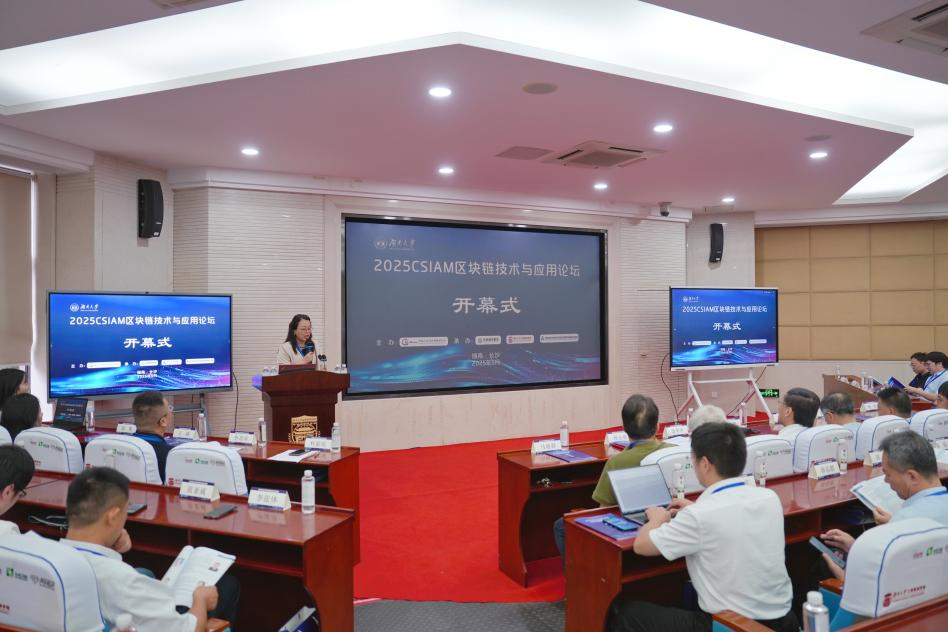
Cheng Yukun presides over the opening ceremony.
Cao Shengyuan extended a warm welcome, emphasizing Hunan University’s commitment to cutting-edge technologies under its motto, "Seeking Truth and Pioneering Innovation." The forum’s staging in Changsha is an important measure for Hunan University to advance the regional “Digital Hunan” development strategy and foster deeper industry-academia collaboration. He expressed the hope that the gathering would stimulate more innovative thinking and contribute to empowering real economy through blockchain technology, supporting Hunan’s “Three highlands and Four new missions”development blueprint with wisdom and strength.
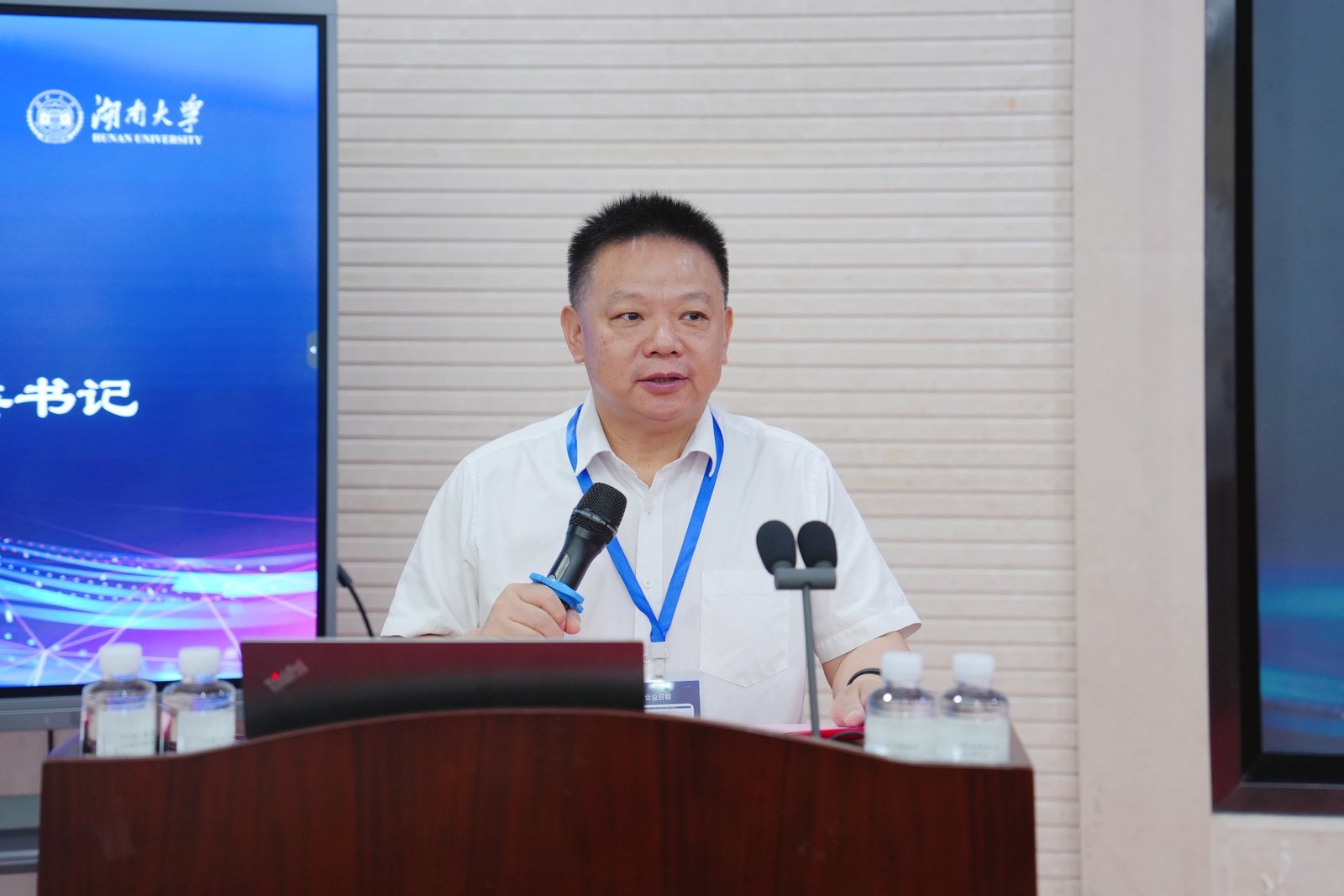
Cao Shengyuan delivers his address.
Tang Huazhong extended congratulations on the forum’s convening on behalf of the CSIAM. He emphasized that mathematics is the foundation of all scientific and technological progress, and that blockchain technology—an interdisciplinary fusion of mathematics, computer science, and economics—offers tremendous application potential. CSIAM aims to build high-level academic exchange platforms and hopes that experts and scholars will engage in fruitful discussions at this forum to advance breakthroughs in underlying blockchain technologies and promote innovative applications, injecting new momentum into China’s digital economy.
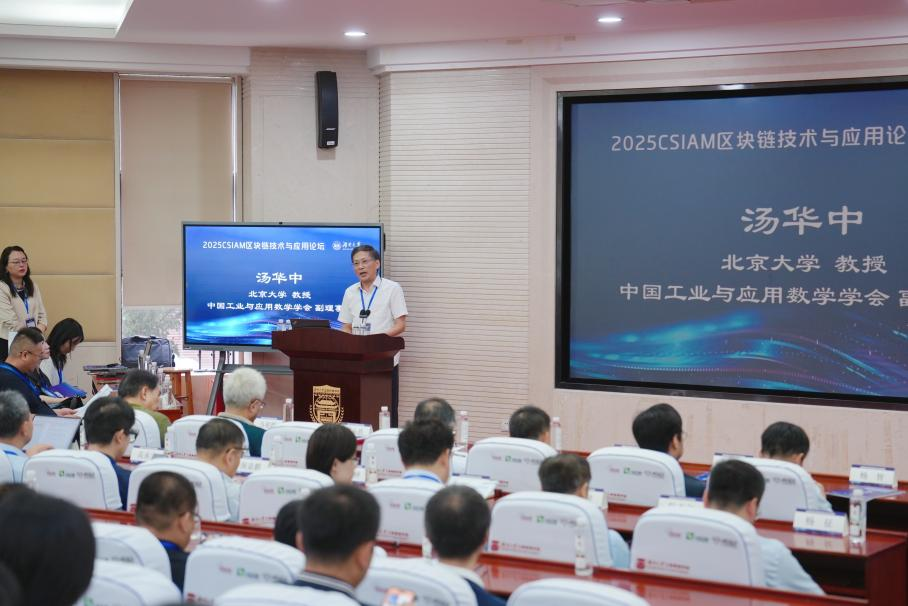
Tang Huazhong delivers his address.
Deng Xiaotie stressed in his address that blockchain technology is at a critical juncture, transitioning from theory to large-scale application, with its pivotal role in building a trusted digital future becoming increasingly evident. The committee's mission is to unite the strengths of academia and industry to jointly overcome technical challenges and explore application scenarios. He expressed his sincere gratitude for Hunan University's meticulous preparations and wished all attendees a fruitful exchange of ideas.
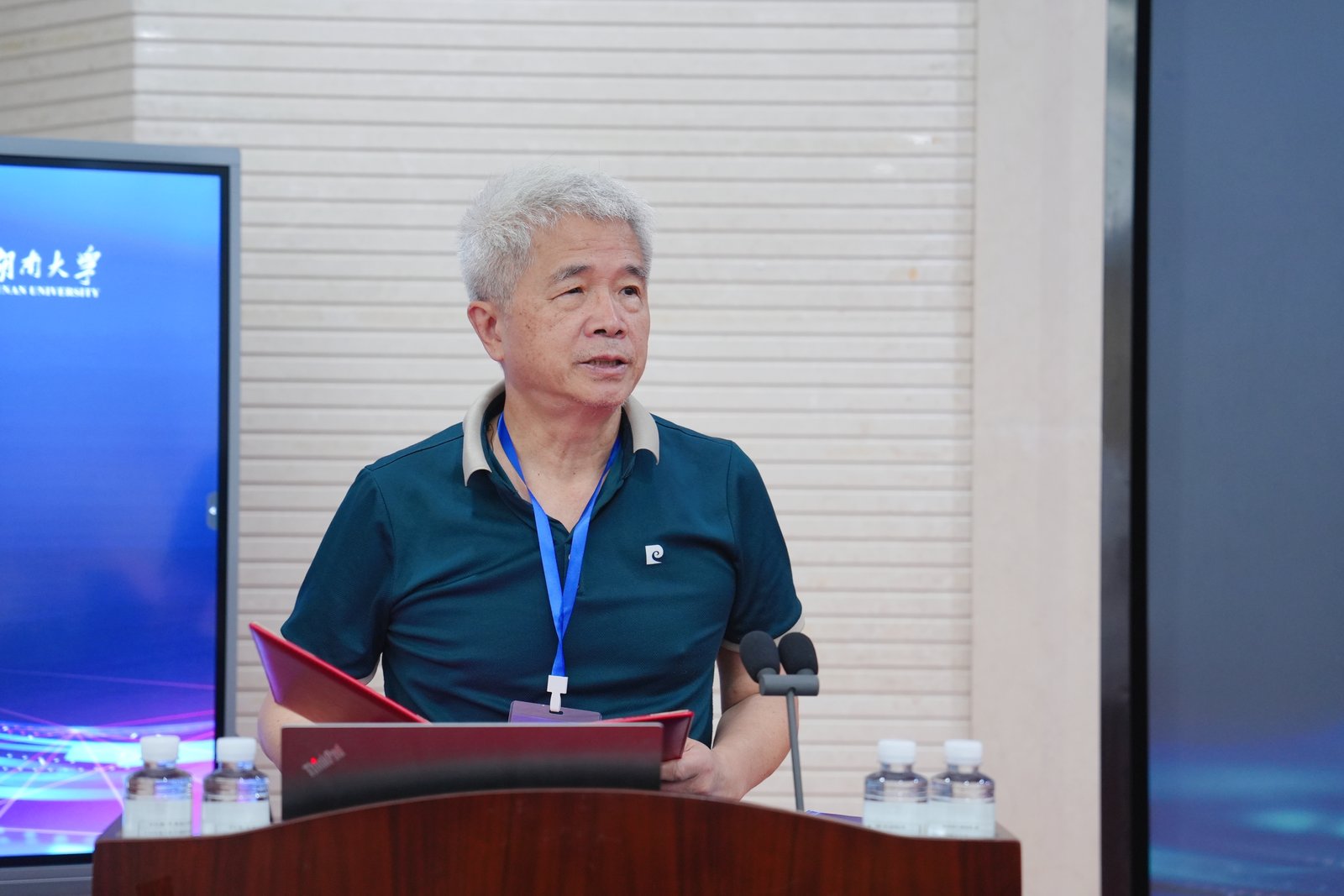
Deng Xiaotie delivers his address.
Following the opening ceremony, four invited experts delivered insightful keynote presentations. Academician Zheng Zhiming, in his report "Development Pathways of Artificial Intelligence," elucidated three major development paths: AI for complex data systems, technology-driven decision-making large models, and precise intelligence embedded with mathematical and physical laws.
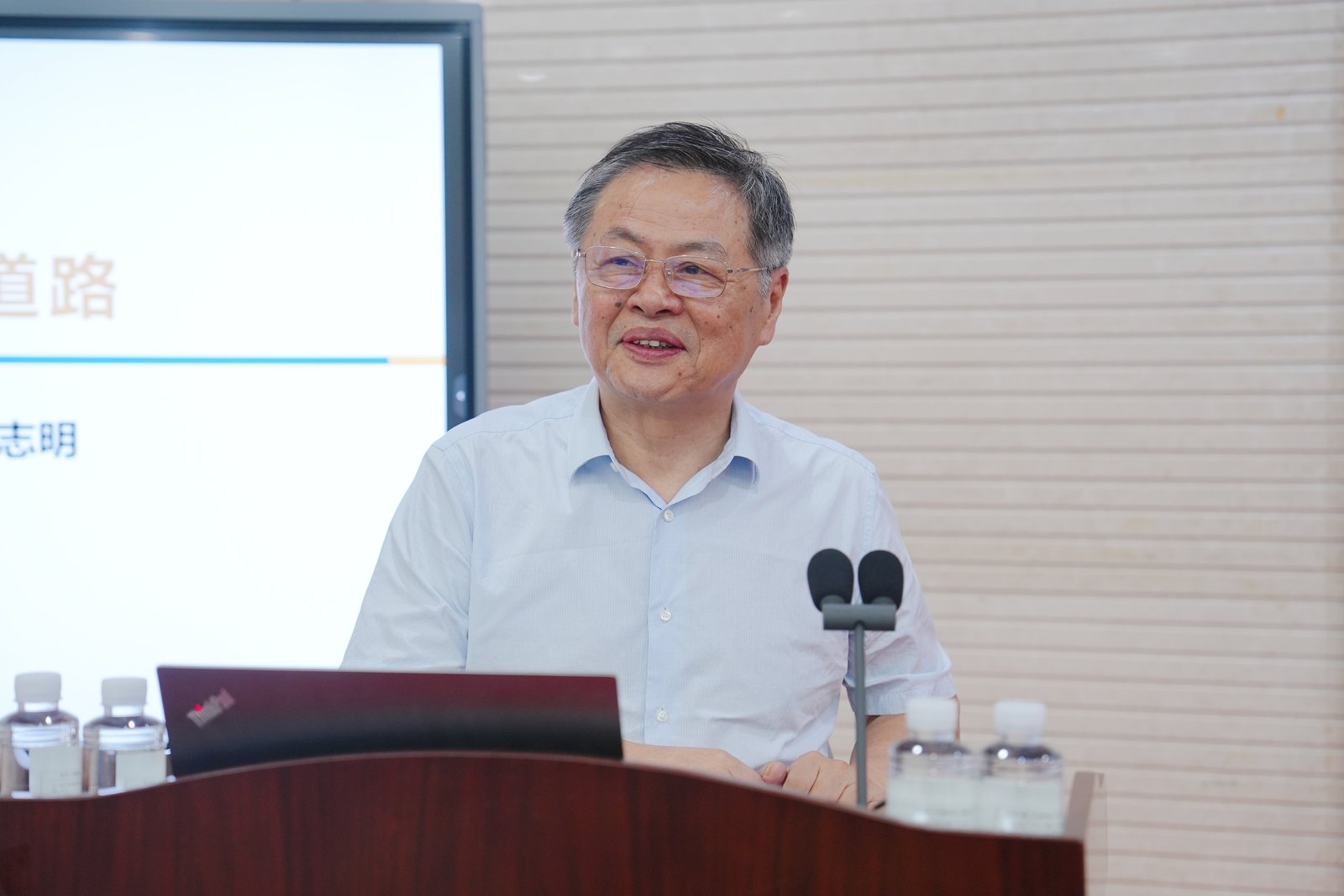
Zheng Zhiming delivers a keynote report.
Professor Ma Chaoqun, in his report "Research on Key Frontier Technological Issues of High-Performance Scalable Blockchains for Complex Financial Business/Services," provided an in-depth analysis of critical scientific challenges for high-performance scalable blockchains in complex financial services from the four dimensions of "architecture, computation, storage, and collaboration."
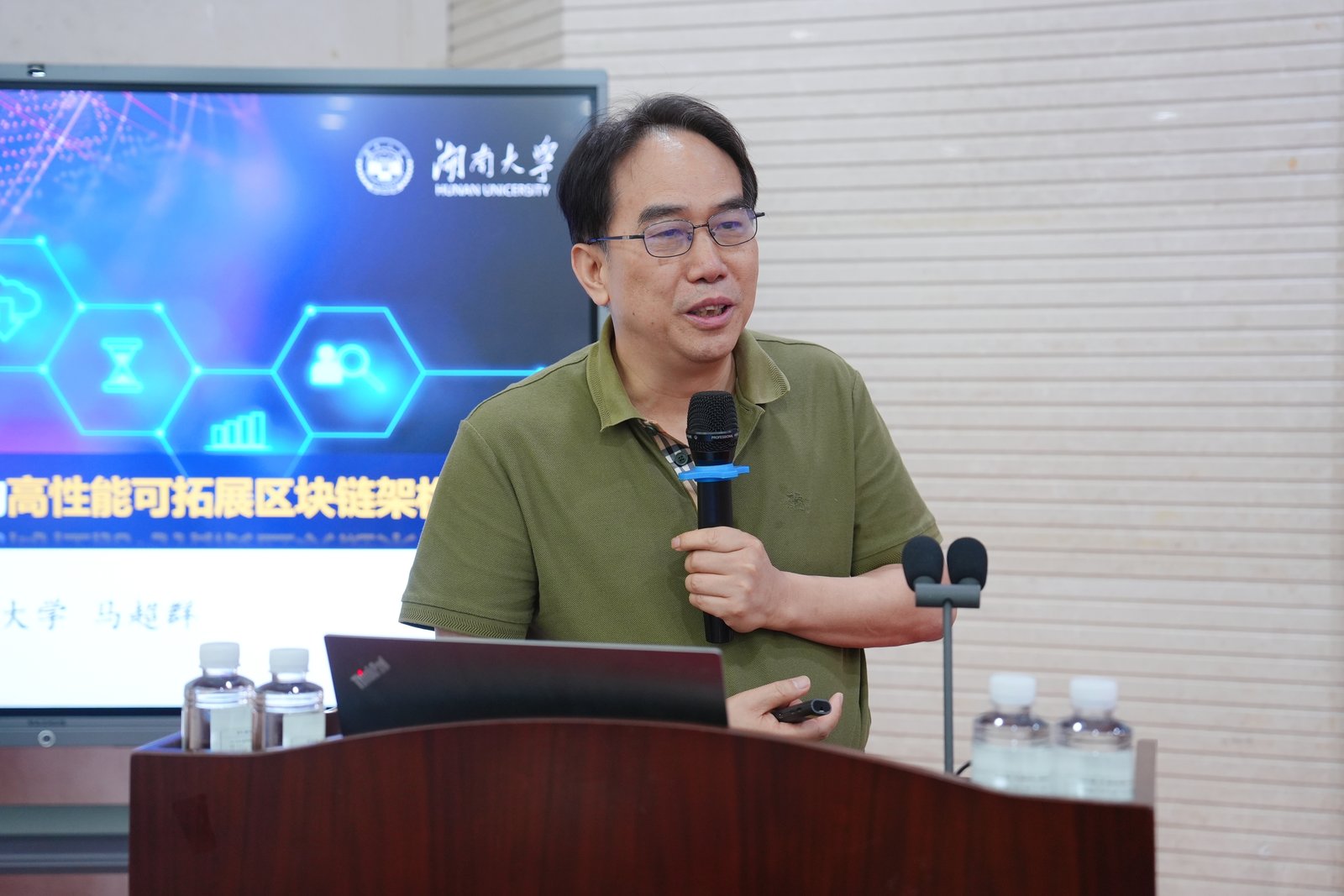
Ma Chaoqun delivers a keynote report.
Professor Yu Yu from Shanghai Jiao Tong University, in his presentation "Secure Two-Party Computation with 1 Bit Communication per Gate using Garbled Circuits," proposed an innovative framework for constructing garbled circuits, which has the potential to reduce the communication overhead for each logic gate in secure multi-party computation to just 1 bit.
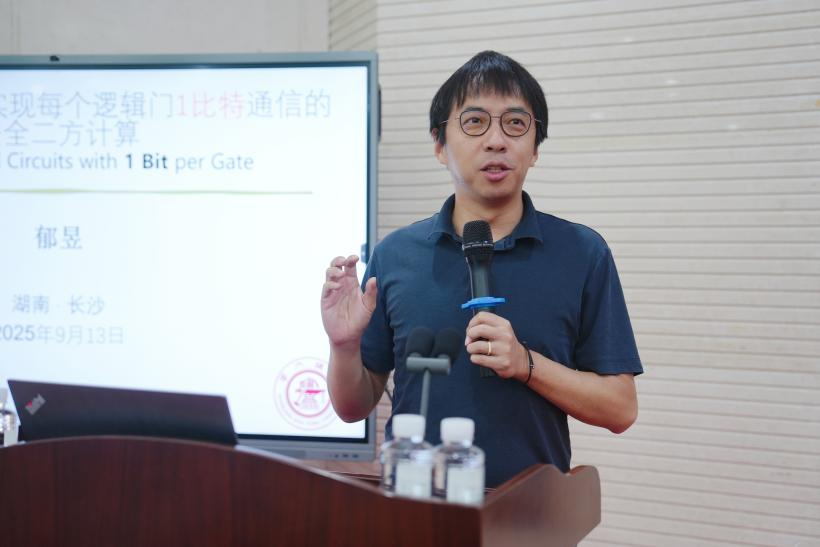
Professor Yu Yu delivers a keynote report.
Professor Chen Jing from Tsinghua University, with her report titled "Composable Byzantine Agreements with Reorder Attacks," presented a novel adversary model that combines participant corruption and channel attacks, offering a rigorous analysis and tight theoretical bounds for the composability security of Byzantine protocols.
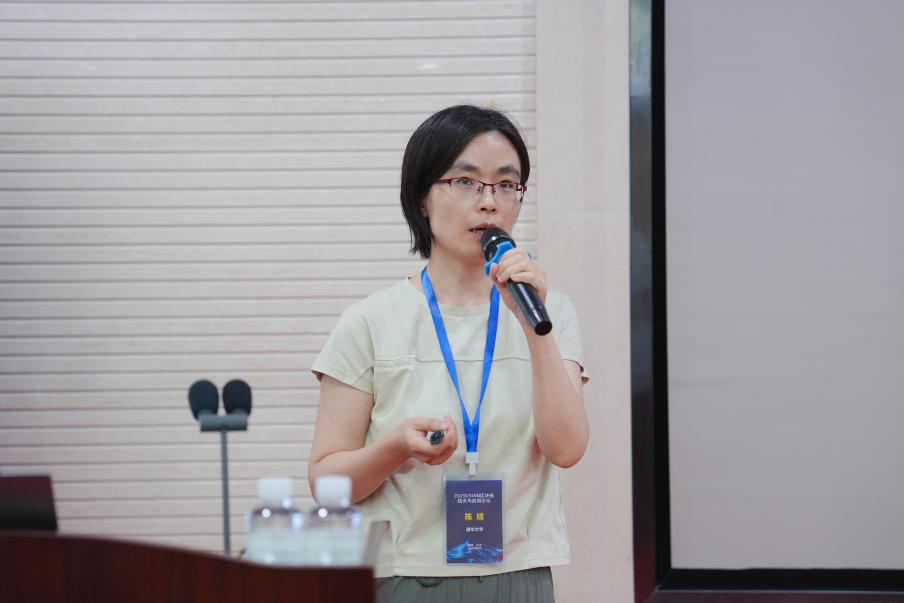
Professor Chen Jing delivers a keynote report.
The forum also featured a round-table discussion on "Blockchain Technology and Application Development," moderated by Gao Chengshi, Chairman of Anhui Stack Valley Technology Co., Ltd. Professor Chen Zhong from Peking University, Fu Rao, Executive Director of the Hong Kong International New Economy Research Institute, and Dr. Liu Qijun from Hunan Tian He Guo Yun Technology Co., Ltd., engaged in a thorough and lively discussion on the future development paths of blockchain technology, industry adoption challenges, and application prospects.
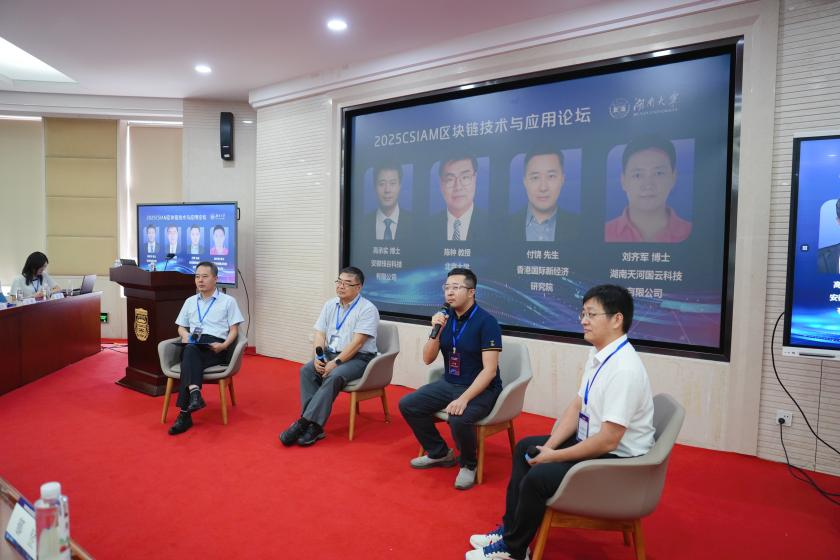
Round-table forum.
The forum offered a rich program and diverse formats. In addition to keynote presentations and the high-level round table, 12 parallel sessions were held. These included seven specialized forums on topics such as "Distributed Ledgers and Digital Finance," "Digital Asset Security," "Blockchain-Driven Supply Chain Management," "Stablecoins and RWA," "Progress in Blockchain Consensus Mechanisms," "Young Scholars Forum," and "Blockchain and Data Elements." Three free reporting forums and two sessions for outstanding doctoral (postdoctoral) paper evaluations were also conducted, comprehensively showcasing the latest research achievements in China's blockchain field and the academic prowess of young talents.
During the conference, the Professional Committee also organized the "Committee Enters Universities" event and convened the committee's working meeting and the working meeting of the Young Editorial Board for the Blockchain journal, infusing fresh perspectives into the professional group.
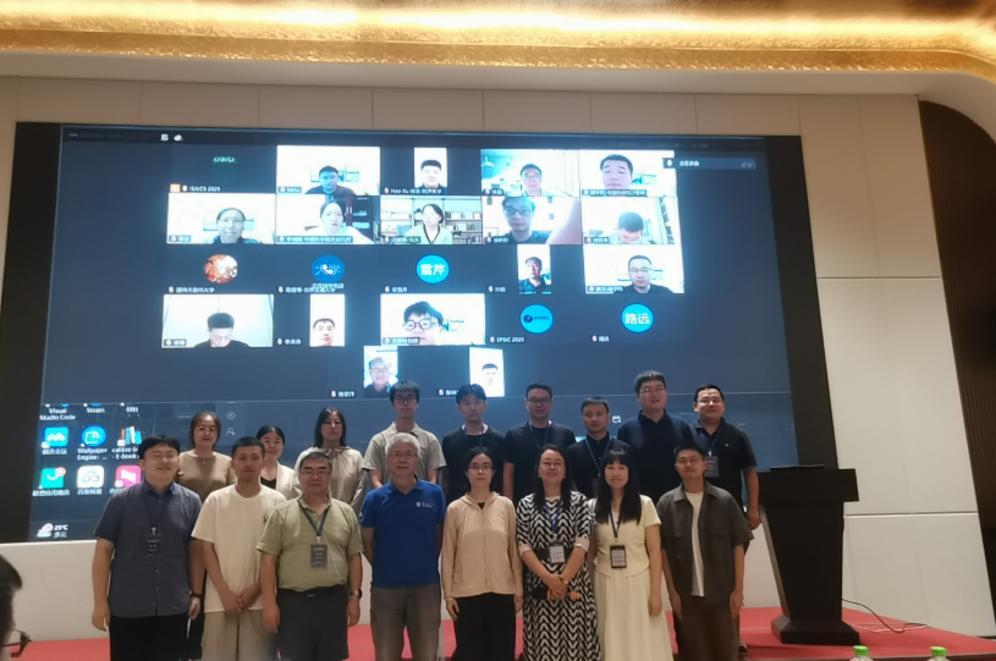
A group photo of the Young Editorial Board of the Blockchain journal.
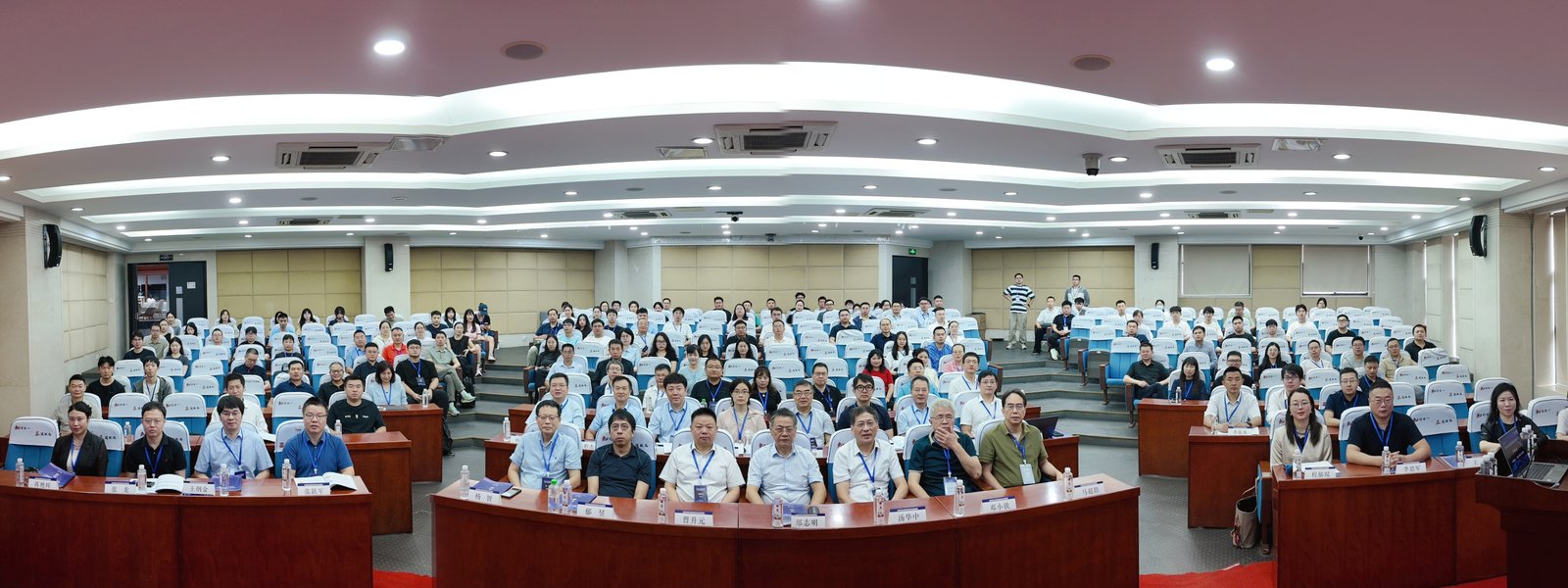
Scene from the opening ceremony.





